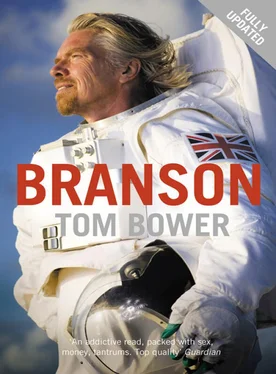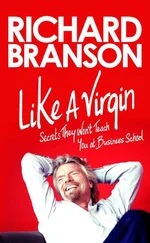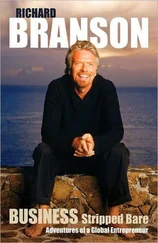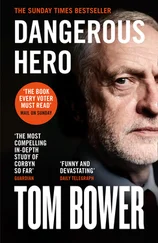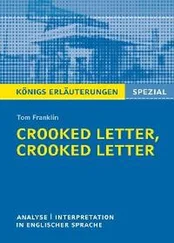Back in 1969, money was a singular obsession although mention of the subject was impolite. The floppy haired, nineteen-year-old youth wearing black rimmed glasses held together by a plaster, was hunting for profitable ideas.
‘What can we do?’ groaned Richard Branson. Three teenagers sat in the smoke-filled basement of a shabby house in Bayswater, London. ‘We need some bread.’ His audience drew hard on their cigarettes. John Varnom and Tony Mellor regarded the younger man as a friend, host and employer. Living with Branson, a benign sovereign, was an enjoyable self-indulgence.
‘What about records?’ suggested Varnom desultorily. The twenty-four-year-old-writer and publicist was Branson’s Rasputin and jester.
‘We could try mail order,’ sighed Mellor, a hippie with a passion for music.
Branson jerked excitedly, his imagination racing. Mail order records: the idea would fill a gap in the market, a trader’s dream. There was also an angle. ‘They’ve dropped Resale Price Maintenance,’ he said.
‘What’s that?’ asked Mellor admiringly.
‘The record companies can’t fix the shops’ prices any more,’ gurgled Branson. ‘Costs nothing to put an ad in a newspaper,’ he continued, ‘and we could sell them cheaper than the shops.’
The Beatles, the Rolling Stones and the Kinks were just a blur of noise to Branson. Tone deaf and knowing little about music, he rarely listened to records. He was a doer, not a person to wait and listen. But selling cut-price records sounded as exquisite as Cliff Richard singing ‘Bachelor Boy’, his favourite.
The idea had been sequestrated. A new business shimmered. ‘We’ll put an ad in Student ,’ he announced. His beloved magazine, tottering towards extinction, might beget his next enterprise. Readers of Student would be offered any rock record at 10 or 15 per cent less than the shop price.
‘What shall we call the company?’ he asked.
Varnom and Mellor brainstormed. Names tumbled out. ‘Slipped Disc’ was suggested and abandoned. Although he was silent, Branson’s demeanour implored his employees to produce more ideas. Varnom, lustfully contemplating the stream of nubile former public school girls who regularly passed through Branson’s squat, departing somewhat wiser about the world thanks to his attentions, laughed. ‘Virgin,’ he chortled. ‘Virgin,’ he repeated, delighted by his idea.
‘That’s it,’ gushed Branson, loving the combination of sex and subversion. ‘Great.’ The new name eventually inherited a new pedigree. ‘I thought of the name Virgin,’ explained Branson twenty-five years later, ‘while sitting in the crypt of a church surrounded by two coffins.’
Virgin Records, a mail order supplier of pop, started trading in April 1970. The advertisement in the last edition of Student magazine produced an encouraging trickle of orders with cash attached. Branson sensed the opportunity. Virgin bought whole-page advertisements in Melody Maker and other music newspapers. Dramatically, the number of orders exploded. Virgin, buzzed the bush telegraph, was cool. Supplying records at discount prices, breaking the record manufacturers’ rigid price cartel, was heroic; and selling bootleg records bought from ‘Jeff in the East End’ for 50 pence to punters for £3 was profitable. ‘I believe in competition,’ enthused the wannabe tycoon, ‘and I believe in helping the young.’ Branson deftly borrowed the language of the Swinging Sixties and student revolution to establish his principal sales pitch. His business was to be cheaper and therefore a service to mankind. Branson was emphatic about his motives: ‘There is nothing phoney about my idealism,’ he would later insist. ‘I had a genuine belief that I should be using my skills and the resources at my disposal to “do good”.’
Doing well by doing good was a beguiling explanation except to the four men isolated in a locked room in St Mary’s Hospital, Paddington. From there they scrutinised Virgin’s new premises in South Wharf Road through binoculars. ‘Dead as a dormouse,’ cursed Mike Knox, the senior investigator for Customs and Excise.
In February 1971, ten months after Virgin advertised cut-price records, Mike Knox knew that Richard Branson’s expanding enterprise was being financed by a crude fraud. Posing as an unassuming government tax clerk, Knox had invited himself into Virgin’s new warehouse. The introduction aroused no suspicion. In that era, it was normal for Her Majesty’s Customs and Excise to provide a clerk every three months to calculate each company’s purchase tax, a 33 per cent levy on all sales. Sitting in Branson’s congested first floor office, watching attractive girls flitting around their unsuspecting tousle-haired employer, Knox glanced through Branson’s accounts, especially those of Caroline Exports trading as an unregistered company. Branson, the director, was too excited by that day’s postbag containing hundreds of cheques, postal orders and cash to care for the grey man as he sifted through the PT 999s, Caroline’s purchase tax returns. His new business, Branson often chortled, was amazing. Punters’ cash was being banked for records he still did not possess. Imported American records, bought for pennies, were sold for pounds. ‘Cash flow,’ he enthused, ‘is great.’ But his aspirations were not financed entirely by conventional means.
The genesis of his fraud, Branson would say, was accidental. Soon after Virgin Records’ birth, Branson himself had driven a van to Dover with a consignment of records for export. After a Customs officer had placed the official stamp on a PT 999 confirming that the records had been exported and were exempt from purchase tax, Branson had boarded the ferry for Calais. Unexpectedly, the sailing was cancelled because the French port was closed by a strike. Branson had driven off the ferry and, unhindered by officials, returned towards London. During the drive, he realised that the records could now be sold through his mail order company to British customers without adding purchase tax. The extra money would belong to him. Two tax agencies could be deceived. Customs would not receive the 33 per cent purchase tax and the Inland Revenue would be denied the tax on his additional profits.
On his return to Paddington, Branson had confided his discovery to his inner cabal of six. ‘The Customs office is not near the port,’ he explained, ‘so the forms get stamped but they don’t have any barriers or checks to see if you’ve gone on to the ferry or driven back to London.’ His audience was transfixed.
Branson’s conscience was untroubled by the dishonesty. Gambling against discovery was exciting. A pattern had been established that he would later describe with evident pride: ‘I have always thought rules were there to be broken.’ He had cheated in school examinations; he had repeatedly deceived the Church Commissioners, the landlord of his home in Albion Street, by disguising its use as an office; he had defrauded the Post Office by using the telephone without paying; now he was selling bootleg records; and he had just been convicted for poaching game in a magistrates court.
The recent conviction for poaching had been particularly revelatory. Branson had driven in his white Mini with Mundy Ellis, his bubbly, blonde girlfriend, to stay with Caroline and Rob Gold, a music publisher, in a rented cottage in Suffolk.
Branson liked the Golds and the sentiment was reciprocated. The Golds lived on a houseboat in Little Venice and Caroline had become Branson’s paid assistant, although she had become wary after Branson had unsuccessfully invited her father, Frank Gold, a shipping forwarder who owned warehouses, to become involved in his purchase tax operation. Nevertheless, the Golds felt sympathy for the young man whose twin laments were, ‘I didn’t get enough love from my mother’ and ‘How can I make money?’
Читать дальше
